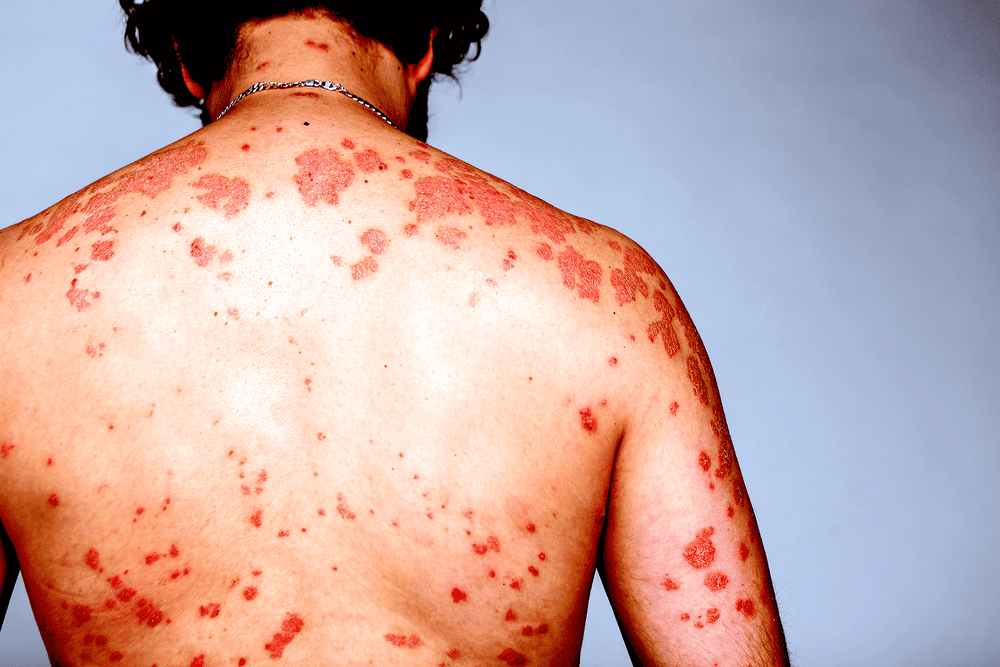
Symptoms of men and women who cannot be ignored
What symptoms of HIV for men and women are known in the early stages?
This article we will share with you about HIV symptoms that you need to know.
Also read:
What is HIV?

HIV (Human Immunodeficiency Virus) is a virus that destroys a person’s immune system and causes AIDS.
This can cause patients to easily get germs and cancer infections.
In Malaysia, HIV patients are reported to increase every year.
The first case reported was in 1986. And the latest HIV infection until 2023 was reported by 69,589 including 3,177 new cases.
Strangely, 90 percent of HIV sufferers come from men for the biggest factor because of the use of needles for drug addiction and unsafe sex practices, especially those involving homosexuals.
Different HIV and AIDS
HIV is a virus that attacks the human defense system and describes someone to AIDS.
You need to know, your infected HIV does not have to have AIDS.
AIDS is a symptom of a group of diseases that attack the human defense system after a person is infected with HIV.
HIV Diagnosis


1. Blood test
Perform blood tests for HIV in hospitals or health clinics. Blood will be sent to the laboratory, and the results can take several days.
2. Fast HIV Test
Your doctor can use a fast test, which involves fingers or saliva.
You can get results in 10 to 20 minutes with confirmation with laboratory tests.
3. HIV self -test
Using the same technology as a fast HIV test, this is a finger test that you can do at home or anywhere.
The results take less than 15 minutes.
Type of HIV Symptoms Level
In general, there are several levels of HIV that you need to know. This is a complete explanation:
1. Acute HIV infection
Acute HIV infection is the initial stage of HIV infection, and usually develops in 2 to 4 weeks after HIV infection.
At present, some people have symptoms such as flu, fever, headaches and rashes.
At the stage of acute infection, HIV reproduces rapidly and spreads throughout the body.
The virus attacks and destroys CD4 cells against infection (CD4 T lymphocytes) from the immune system.
During acute HIV infection, HIV levels in the blood are very high, which increases the risk of HIV transmission.
2. Chronic HIV Infection
The second stage of HIV infection is a chronic HIV infection (also called HIV infection without symptoms or clinical adhesion).
At this stage, HIV continues to reproduce in the body but at a very low level.
People with chronic HIV infections may not have HIV -related symptoms.
3. AIDS
AIDS is the last stage of the worst HIV infection.
Because HIV has greatly damaged the immune system, the body cannot fight opportunistic infections.
Opportunistic infections are infections and cancer associated with infections that occur more or more in people with a weak immune system than those who have a healthy immune system.
Individuals with HIV are diagnosed with AIDS if they have a CD4 number of less than 200 cells/mm3 or.
Without treatment, AIDS sufferers usually last for about 3 years.
Symptoms of HIV Male and Female by Level
Each HIV level has certain HIV symptoms such as:
1. The first stage of HIV sign
Most people find it difficult to identify that they have been infected with HIV.
But they may experience these symptoms within 2 to 4 weeks after they get a virus.
This is when your immune system starts to respond. This process is called acute retroviral syndrome or primary HIV infection.
This initial stage of HIV symptoms is similar to other viral diseases, and they are often compared to flu.
Usually lasts one or two weeks and then disappears.
These HIV symptoms include:
- Headache
- Fatigue
- Muscle pain
- Sick
- Swollen lymph nodes
- Red rash that is not itchy, usually in your body
- Fever also between signs of HIV
- Ulcers (wounds) in the mouth, esophagus, anus, or your genitals
If you have symptoms like this and may come in contact with someone with HIV in the last 2 to 6 weeks, consult your doctor and do HIV blood tests.
The initial test is important for two reasons.
First, at this stage, the level of HIV in your blood and body fluids is very high.
Second, starting treatment as soon as possible will help improve your immune system and reduce your symptoms.


2. The second stage
After your immune system is inferior to HIV, symptoms like the flu disappear.
But there are many other effects that can occur on your body.
This is called an asymptomatic period or chronic HIV infection.
During this stage, untreated HIV will kill CD4 cells and destroy your immune system.
Most people have no symptoms or tastes. You may not realize that you have been infected and can send HIV to others.


3. Symptoms of AIDS
AIDS is the last stage of HIV infection.
Usually occurs when your CD4 TC cell is reduced below 200 and the immune system is badly damaged.
The probability that you get high opportunistic infections.
Even the effect will be worse in people with a weak immune system.
Diseases such as sarcoma caposis (type of skin cancer) and pneumocystis (lung disease), are also considered “diseases that define AIDS.”
Some of these HIV symptoms are such as:
- Become tired all the time
- Swollen lymph nodes in your neck or thighs
- Fever that lasts more than 10 days
- Sweating
- Weight loss for no apparent reason
- Purple spots on your skin that is not lost
- Difficulty breathing
- Severe and durable diarrhea
- Yeast infection in the mouth, throat or your vagina
- Bruises or bleeding you cannot explain
- Neurological symptoms such as memory loss, confusion, balance problems, changes in behavior, seizures, and changes in vision
Proper HIV treatment


There is no vaccine or antidote to treat HIV infection.
However, there are effective treatments that can prevent HIV transmission and AIDS development, and help ensure almost normal life expectancy.
This treatment is known as antiretroviral therapy (ART).
It can stop the virus from the breeding itself, which leads to a lower virus load.
This treatment also involves a combination of drugs used together in accordance with the doctor’s advice.
Hopefully our partnership with HIV symptoms will give you all useful information and knowledge to be a general reference.
Source:
- How can you know if you suffer from HIV? HIV
- Early signs of HIV. Health line
- Symptoms of HIV in men: signs of initial stages and then to find out. WebMD
Game Center
Game News
Review Film
Berita Olahraga
Lowongan Kerja
Berita Terkini
Berita Terbaru
Berita Teknologi
Seputar Teknologi
Berita Politik
Resep Masakan
Pendidikan
Berita Terkini
Berita Terkini
Berita Terkini
review anime
Gaming Center
Originally posted 2025-06-18 21:31:59.


